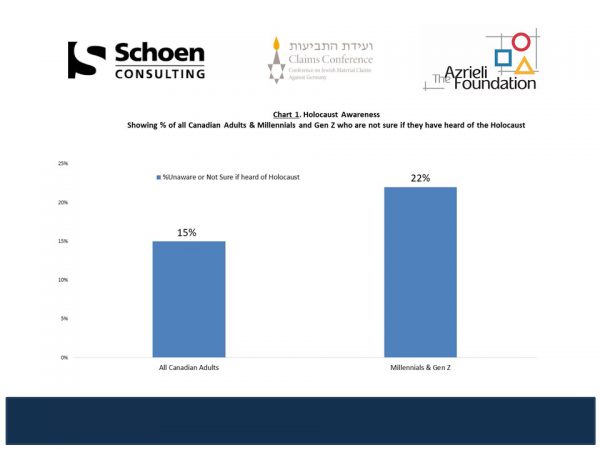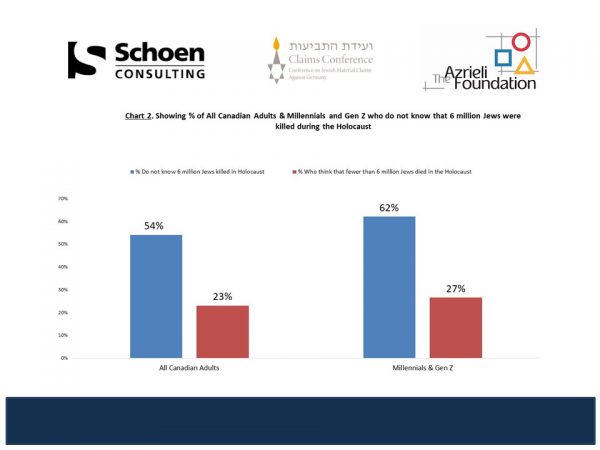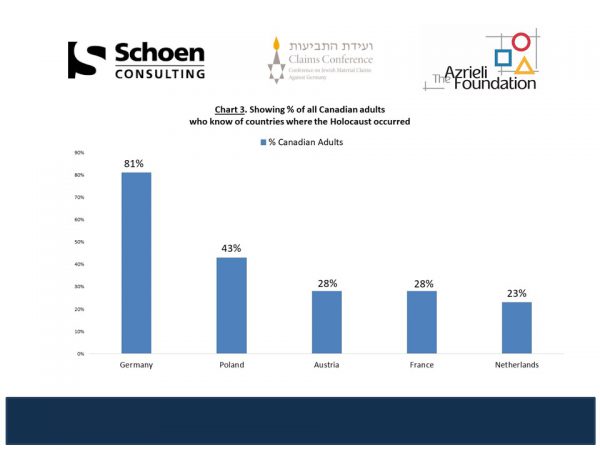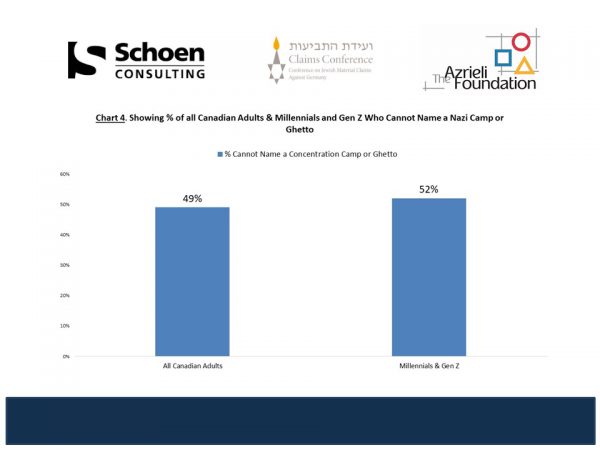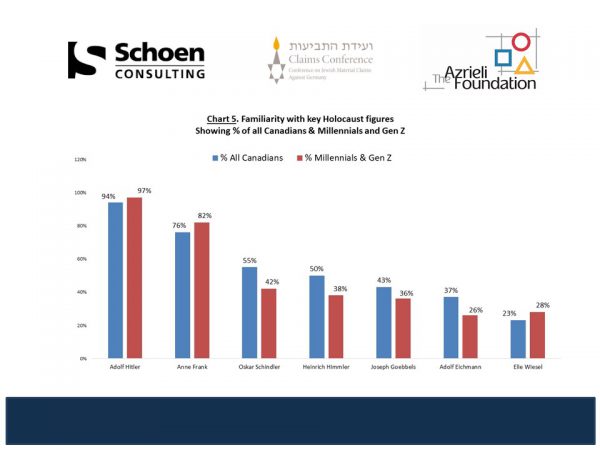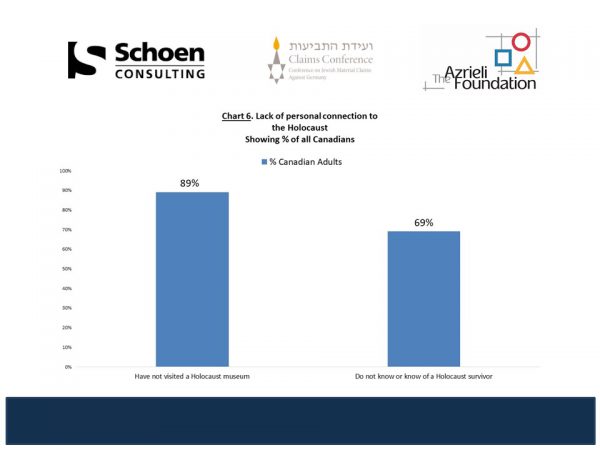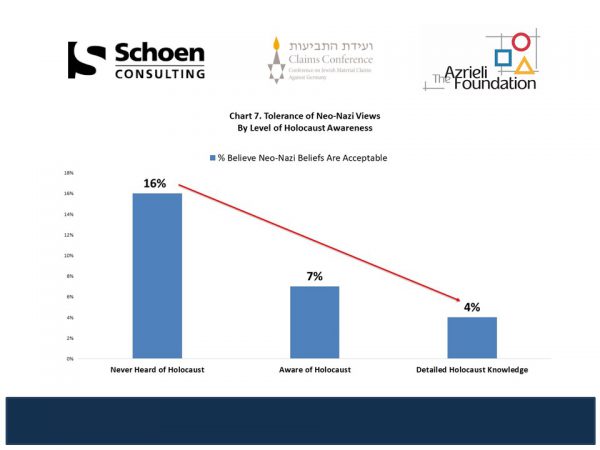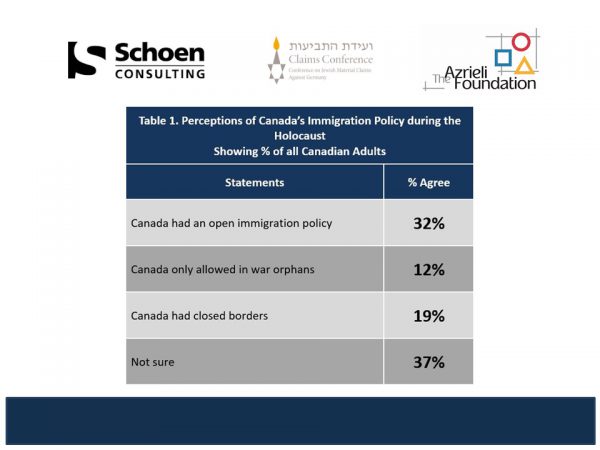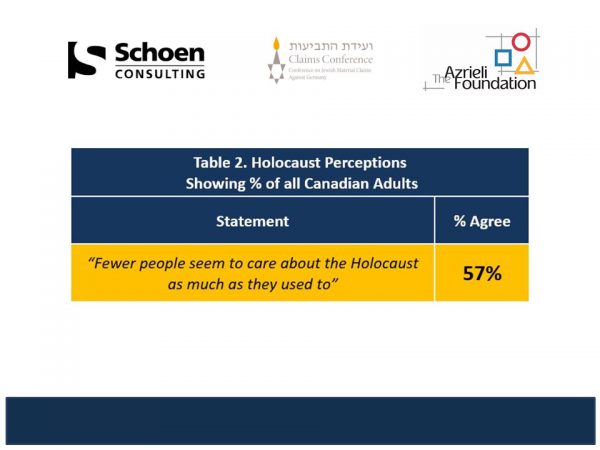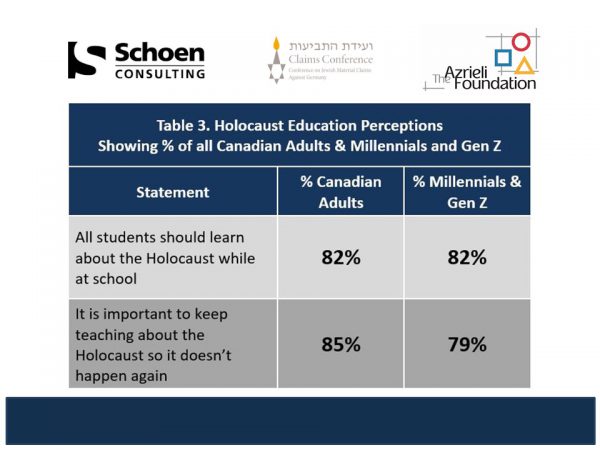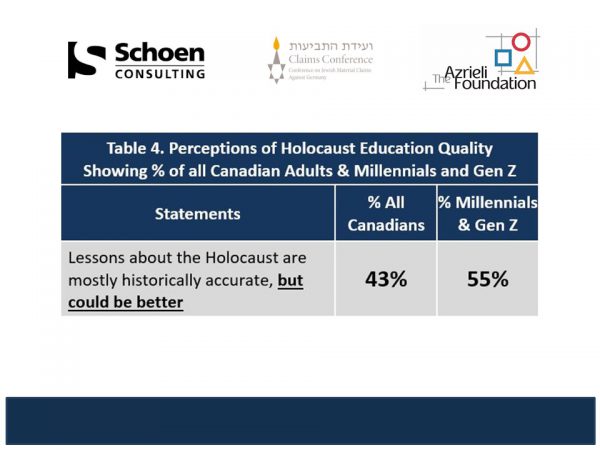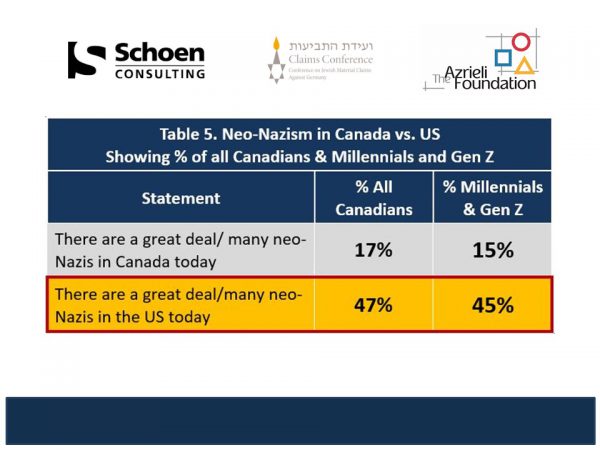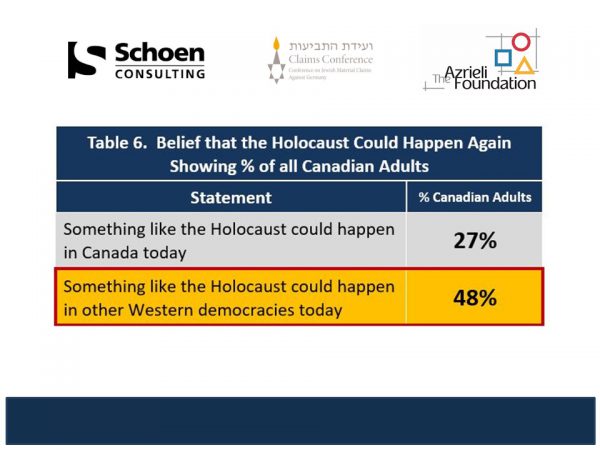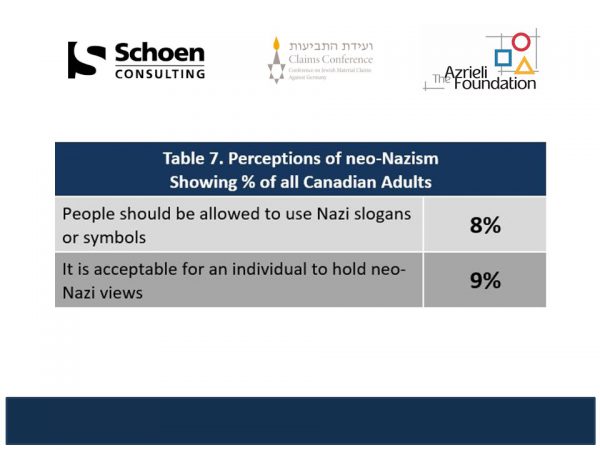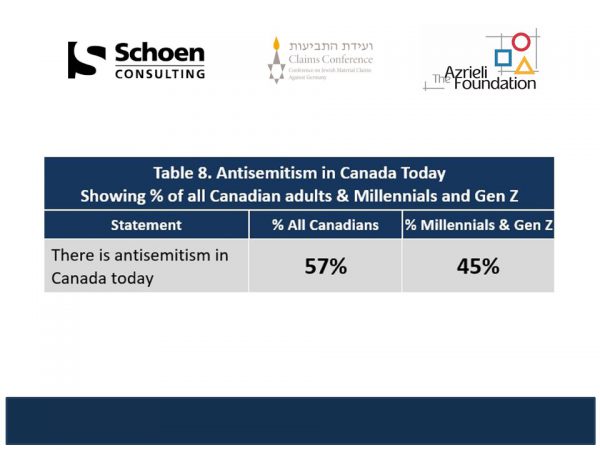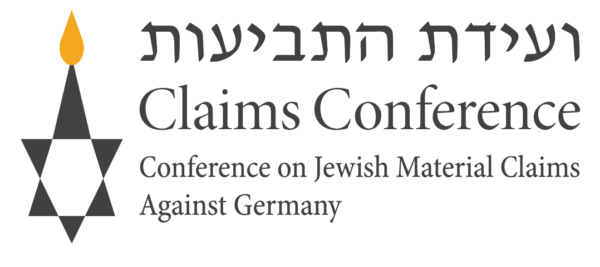New Survey by the Azrieli Foundation and the Claims Conference Finds Critical Gaps in Holocaust Knowledge
The Majority Polled Did Not Know Six Million Jews Were Killed During The Holocaust And A Stunning Near-Majority Believe There Are A Large Number Of Neo-Nazis In The U.S.
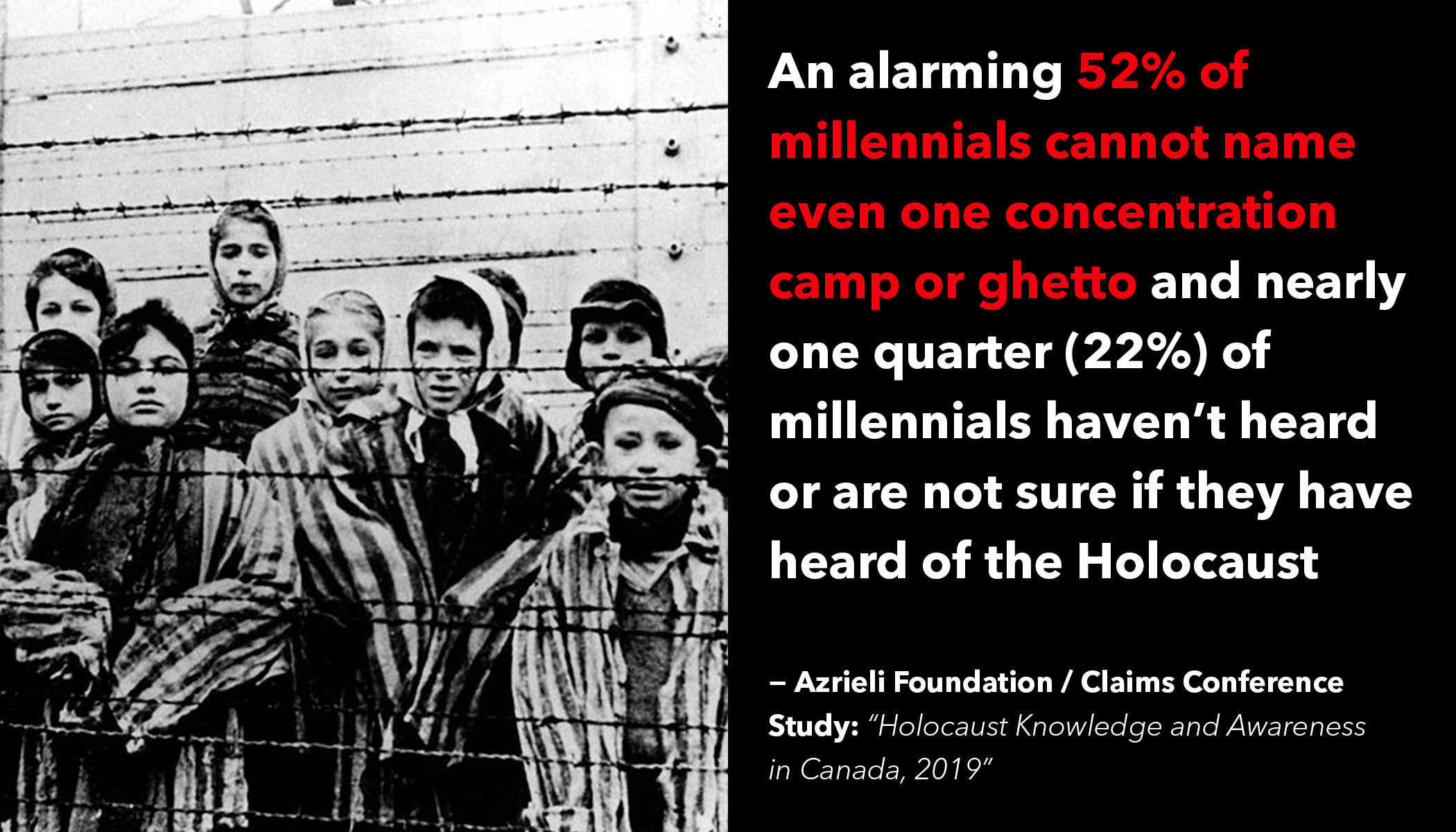
Julius Berman, President of the Claims Conference, and Naomi Azrieli, CEO and Chair of the Azrieli Foundation, jointly announced the release of a comprehensive Holocaust Knowledge and Awareness Survey of adults in Canada done in partnership with the Azrieli Foundation.
The Claims Conference has conducted nine surveys across eleven countries examining Holocaust knowledge and awareness worldwide
Similar to the April 2018 survey in the United States, the Canadian study found critical gaps both regarding awareness of historical basic facts and detailed knowledge of the Holocaust. For example, 54 percent of those surveyed did not know that six million Jews were killed during the Holocaust. And, while a significant majority of Canadian adults believe that fewer people care about the Holocaust today than they used to, there was a broad-based consensus for providing comprehensive Holocaust education in schools across the country.
Major findings of the survey include:
- Nearly half (48 percent) say something like the Holocaust could happen in other Western democracies today.
- An alarming 52% of millennials cannot name even one concentration camp or ghetto and 62% of millennials did not know that six million Jews were killed in the Holocaust.
- 22% of millennials haven’t heard or are not sure if they have heard of the Holocaust.
- Nearly one-quarter of all Canadians (23 percent) believe that substantially less than six million Jews were killed (two million or fewer) during the Holocaust, while another near-quarter (24 percent) were unsure of how many were killed.
- Nearly six out of ten Canadians (57 percent) say fewer people seem to care about the Holocaust than they used to.
Canadian perceptions of the neo-Nazi movement in the United States are quite disturbing. 47 percent of the Canadian respondents say there are a “great deal” or “many” neo-Nazis in the U.S. compared to only 17 percent who say there are a “great deal” or “many” neo-Nazis in Canada.
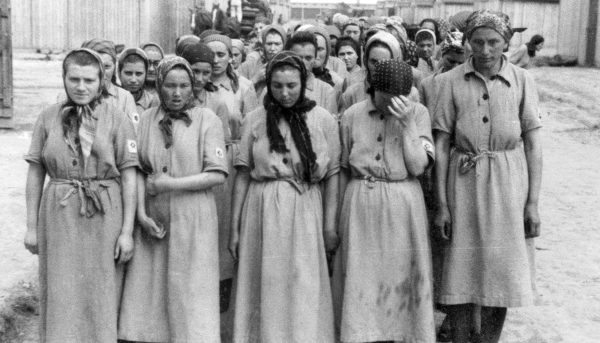
A task force, which was comprised of Holocaust survivors, as well as representatives from Holocaust museums, educational institutions, and leading nonprofits in the field of Holocaust education helped develop the survey questions. Participants in the task force included: the Azrieli Foundation, Yad Vashem, the United States Holocaust Memorial Museum, and the Claims Conference.
Naomi Azrieli says, “When we heard about the first Claims Conference study by Schoen in the U.S., we were keen to know how we were doing in Canada. I was shocked and disappointed to see the Canadian results. Clearly, there are holes in our education system that must be filled because as it stands now, we are not preparing the next generation to learn from the past.”
Additional significant gaps in knowledge about the Holocaust that are revealed by the survey include:
- While there were over 40,000 concentration camps and ghettos in Europe during the Holocaust, 49 percent of Canadian respondents couldn’t name a single camp or ghetto, similar to the U.S. study, where 45 percent could not name one such place.
- 32 percent of respondents believed that Canada had an open immigration policy for any Jewish refugees fleeing Europe. In reality, Canada had one of the worst records of any democracy, allowing only 5,000 Jewish refugees into the country while allowing nearly 2,000 Nazi war criminals to immigrate to Canada after World War II.
- A surprising 71 percent were not familiar with Holocaust survivor icon, Elie Wiesel, and only 55 percent were familiar with Oskar Schindler, a German businessman who saved the lives of a number of Jews during the Holocaust, underscoring the need for continued education about the Holocaust.
- 82 percent of respondents believe all students should learn about the Holocaust in school, while 85 percent said it is important to keep teaching about the Holocaust so that it does not happen again.
Julius Berman, Claims Conference President, noted, “Here we have yet another study showing that Holocaust education falls woefully short, and we must work together to correct this global issue. As International Holocaust Remembrance Day approaches, we are reminded of how important education is if we are to ensure that the atrocities of the Holocaust will never happen again.”
“The results of this study should cause great concern about Holocaust education and the gaps we have again uncovered,” commented Greg Schneider, Executive Vice President of the Claims Conference. “We must do all we can to educate about the horrors of the Holocaust; it is incumbent on us to ensure that those who suffered so greatly are remembered, while their stories are told and taught by future generations.”
Survey Methodology and Sample
The Holocaust Knowledge and Awareness Study was commissioned by the Azrieli Foundation in partnership with the Claims Conference. Data was collected in French and English and analyzed by Schoen Consulting with a representative sample of 1100 Canadian adults via landline, cell phone, and online interviews. Respondents were selected at random and constituted a demographically representative sample of the adult population in Canada.
Topline Results
Topline Results: Canada/U.S. side by side
Topline Results: Canada Only
Topline Results: Millennials
Topline Results: (Français)
Methodology
Holocaust Knowledge and Awareness Study – Methodology
